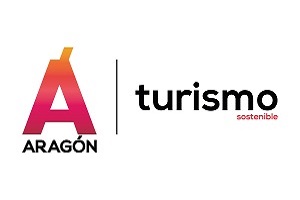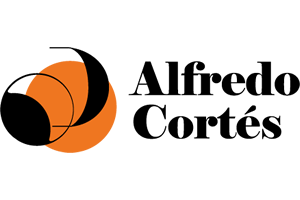Let’s start with the basics, what is #Novagob2021?
It is the most important public innovation event in Spanish. Especially with influence in Spain, but with some influence also in Latin America. It is a congress that has been held for seven years and this year we are hosting it in Aragon. A year ago we decided to host it and we had the prudence, as we did not know how the pandemic was going to be, to do it in digital format. But we didn’t want to do another meeting for Zoom and Youtube and we decided to undertake a project we had in mind for some time and take this opportunity to launch it, which was to create a virtual environment. An unpublished space of mixed reality in three dimensions that allows us to dream a little and do things differently, which is #LAAABvirtual.
What topics will be discussed at the congress?
We will talk about digital transformation, open government, different types of tools, public ethical integrity and accountability. The topics are based on six aspects that for us are key, which are precisely the six vectors of the hexagon of public innovation: Open, which refers to everything that is open, to generating conversations with the outside world and opening institutions; Trans, which means mixing, hybridizing, breaking verticality and making approaches more transversal; Fast, administrative streamlining, reducing bureaucracy or time; Proto, working on prototypes, pilot projects, minimum viable products, implementing the culture of design in public administration; Co, the idea of co-creation, collective intelligence, creating learning communities; and Tec, which has to do with digital, which is the most obvious.

Sometimes we see the administration, the institutions, as an almost granite entity, unalterable, but it is important that they innovate.
Totally, we have our own model, which is this hexagon, and what it promotes is a process of transition from hierarchical, monolithic, closed, paternalistic organizations to networked, open, flexible, porous, democratic and empathetic organizations. This is the work that we are doing from the Aragon Open [Government] Laboratory at regional level, but also, through different projects, we are disseminating it so that all kinds of organizations and institutions in the rest of the country and even internationally can adopt it.
So is it possible to change that relationship between citizen and administration so that it is not so cold, so distant?
Of course it is. We have been going through a crisis of confidence and disaffection of citizens towards democracy and institutions for ten years and more. Relations can be rethought in a different way, the network formula can be adopted, more horizontal relations based on trust, emotion and affection, and not on the coldness of bureaucracy and technocracy. We believe that it is possible, although it obviously represents an effort in the face of the inertia of the institutions and the acquired vices and the culture of tradition. But it is not a question of revolutionizing everything, but of introducing these more open, rhizomatic, distributed dynamics in the Administration.
And how has the challenge of launching #LAAABvirtual been?
It is going to be very innovative. We are generating at the same time an exhibition space of the Government of Aragon, a space for events and congresses, but also a kind of Mooc, an online course that will train and transfer knowledge to thousands of civil servants in Spain and throughout Latin America. We have done it with Imascono, which is a company with which we have a long-standing relationship, because it was one of the first ones we incubated when I was director of Zaragoza Activa. And then NovaGob thought it was great to experiment with this format. I wanted, since we were not going to physically develop the congress in Zaragoza, at least that people had the feeling that they were visiting us, and for that reason this idea of #LAAABvirtual, which I think is a format that has come to stay and that will gradually gain ground to deploy amphibious formats.

I know that in this type of environment it is complicated, but can you describe what the person who accesses this LAAABvirtual will find?
They will see a central room that is hexagonal in shape, with a large screen as if they were entering an auditorium, where the big conferences or the inauguration will take place. It also has a central panel that explains what the LAAAB is, what the NovaGob congress is, why it is hexagonal in shape and what the six vectors are. It will also explain that, if you register, you will have access to more things, among others you can get a diploma, so we say that it is also a kind of Mooc, a training course, but instead of having the form of Moodle or a more conventional digital environment, it has the form of a 3D space, which we think is more fun. From there you can move through the six side rooms, which correspond to the six vectors and where the contents are distributed thematically. You will be able to learn about LAAAB projects, other NovaGob projects and other activities such as workshops, lectures or talks. There are practically one hundred speakers at the congress and not all of them fit in the central room.
In a way, this platform complements the physical space for social innovation that you already have in Plaza del Pilar. What would you like this LAAABvirtual to become? How far would you like it to go?
We want it to inaugurate a new format, something that does not exist until now, which is an Open Government showroom, a place where you can show your projects. We have a showroom in Plaza del Pilar 3. We have realized that in the digital world it doesn’t make much sense to set borders, and that with the same effort with which you are reaching the people of Benasque or Cantavieja, in Teruel, you can reach Cadiz, Coruña or, if you hurry, Ecuador or Bogota.

We are also interested, in the medium to long term, in experimenting with citizen participation processes through avatars, although this is not yet developed. Right now you enter as if you were a first person, you do not see yourself or other characters because it is not designed for that and that makes the environment more complex, but why not think that in the future the people of Benasque can connect with an avatar to a participatory process and put some post-its on the blackboard without having to come to Zaragoza?
And also this idea of online resources, of a different way of learning, of participating and interacting. You no longer have a flat course, not even an interactive online course, but you have the feeling of seeing the teacher, of interacting with more people, and so on. We are a laboratory, we have to experiment. It will not be without failures and small risks or small failures, but it is also one of our missions, to test and innovate.
How has the pandemic affected the citizen’s relationship with the institutions? Has anything been learned?
I think the pandemic has been an acceleration, especially at the digital level, the law told us that in 2010 all administrative procedures had to be electronic. That was quite optimistic and in many cases it could not be fulfilled, and ten years later, in 2020, a pandemic appears. I believe that this has accelerated us by ten years. Some administrations have had to do what they were going to do until 2030 in a few months. It has been a very big push, I think that the pandemic has accelerated the processes.
And what steps have been taken in Aragon to improve public innovation and participation?
When I arrived four years ago, one of the first things I did was to transform the participation service into this idea of the laboratory. And from the laboratory we reformulated and revolutionized what we had been doing in participatory processes, in public policies… we got citizens to deliberate to design a law, but we also put ourselves at the service of localities that want, for example, to reform a park or make a local trade plan.

That was what we were doing and we continue to do better, with more powerful tools at a methodological and digital level, but we have also created an innovation ecosystem that consists of a lot of projects such as Open Kids, which has to do with child participation; the Aspasia program, which reflects on participation with a gender perspective and the visibility of women in public policy; Social Impact Academy, a school for young social leaders; Hateblockers, a project that works on the issue of narratives of hate and polarization in social networks; Easy Government, with kids with mental disabilities, diverse abilities or mental health problems that combines the theme of easy reading and translates laws or forms that are very complex into easy reading through pictograms and words; Visual Gob, which is a very powerful tool, I think the most powerful in Spain and which is currently nominated at European level, on accountability in real time and which allows a very, very visual narrative of something very abstract which is the government; or Cvol, which is a digital platform that recognizes the action of volunteers and measures their performance in transversal competencies and in the Sustainable Development Goals. And to all this we could add, for example, everything we did in the pandemic around Frena La Curva which was a platform that we launched naively to channel the energy of citizens in Aragon and that ended up impacting more than twenty countries.
And all this is simple? Because it is very easy to understand that this type of relationship between Administration and citizens is much better, but in the end we are trying to change political and bureaucratic processes that have been working for many decades. How do the administrations themselves accept this effort for innovation?
Evidently there is resistance to change and elements of reaction, because the inertia of the years is powerful and not all the cadres in the Administration understand this change of model, but there we are, playing a bit of a Trojan horse, with many allies inside as well. Besides, the Law of Participation and Transparency protects us, it says that these public policies must have participatory processes. Therefore, there is also a political mandate that gives us power and centrality. And as a symbol of this power and centrality, we are in Plaza del Pilar 3, we are not a peripheral laboratory but we are in the center of the city promoting these things.

Therefore, we are somehow inoculating this culture, this way of seeing the Administration in the organization as a whole, and that is our objective, we have not come here to play the girl, to do little colorful things that look good in the Power Points, but we have the legitimate ambition, not naive but really complicated, to change the whole institution. We want the Government of Aragon to be an example of new institutionalism and we know that it is a long-term process, that it will take us years and that we are thousands and thousands of employees and hundreds of services, but that little by little we are going to generate these alliances, these connections, these networks of innovators. We are assembling an interdepartmental entente of people who see this and also with the political support of the president, Javier Lambán, and the counselor, Mariví Broto, who give us all the confidence and all the momentum.
#Novagob2021 starts on Thursday 28th and it is free and open access. Who can be interested in attending?
All public employees of Aragon, who will also receive an official diploma from IAAP equivalent to 15 hours just for attending and filling out a short questionnaire. To all public employees from Latin America, whether from Andalusia, Argentina or Chile, because they will have an interesting experience and will be able to receive a diploma from NovaGob. And thirdly to all individuals, companies and academics interested in public innovation.

What does it mean for Aragon to organize such an event?
We are going to mark a milestone, Aragon is positioning itself in the last two or three years as the most innovative Autonomous Community in Spain. Awards at European level and mentions at national level are placing us in that category. We are now nominated for three awards in the Innovation Politics Awards, and this is the first time in history that the same institution has been nominated three times.
And this has a special merit because we are not an Autonomous Community with many resources, and in spite of that we are positioning Aragon as a spearhead of public innovation, and this is important because in the end the public sector represents no less than a third of the Gross Domestic Product of each territory. We can now make the French revolution in companies, we can now make the digital transformation in SMEs, and without the public sector being strong, being disruptive, being innovative, we will not be able to move forward.
I believe that we are doing it and we are doing it well, and this #NovaGob2021 is the corollary of this process, which will have to continue in the coming years so that this is not a temporary fashion but a trend.














